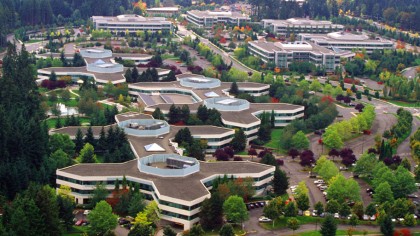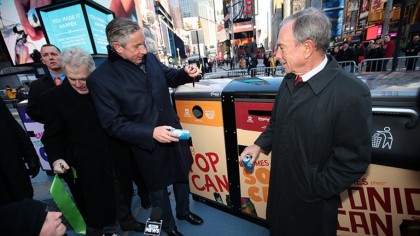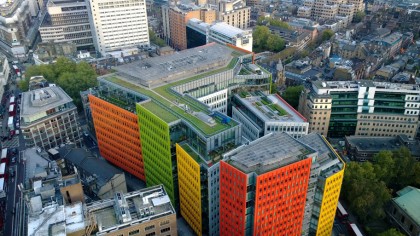How the Internet of Things makes cities smart
Small things are getting smart - and they're making things as big as a city smart too
Sign up for breaking news, reviews, opinion, top tech deals, and more.
You are now subscribed
Your newsletter sign-up was successful
Unfortunately hardly any of the buildings have the same heating and cooling systems and there are 35,000 different pieces of equipment to look after. Instead of spending $70 million replacing them all, Darrell Smith's team built a software system to combine all the data, without adding any sensors. "We knew we were wasting energy," he told us. "We just didn't know how or where."

Now he can look at trends and tell when a building is starting to get too warm because a vent is jammed long before he gets a complaint (by which time you've been wasting money running both systems for hours, plus everyone is annoyed). You might ignore a low-priority fault that happens at 3am, but the monitoring system lets you see if the problem is just annoying or is costing you $12,000 overnight.
All told, he shaved $2 million off Microsoft's bills in fewer than 18 months and he hasn't even started on ideas like not running the air conditioning in a meeting room where there are no meetings booked. By July 2014 Microsoft will have added the same monitoring to all its sites in the US and then it's starting on sites in India, China and the UK.
Not just some rubbish tech
You could go to a Microsoft partner like Accenture to build the same thing for a city, but it's a huge project.
What we'll see first are things you can add smarts to easily, to save money and get a better service straight away. Take the Big Belly solar rubbish bins; they have a solar panel that powers a compactor that crushes the rubbish so you can fit more in one bin. They were installed in a lot of US national parks, where remote locations make emptying the bins more of an effort.

When Nottingham council put them in the city center, they went from emptying the bins six times a day to being able to do it every other day. And they get less litter blowing down the street because each bin sends a message when it needs emptying. A dozen councils in the UK have already installed them.
Adding sensors to things you have on every street makes sense if you can save more money by monitoring them than it takes to add the sensors and the equipment. But remember, you also need to add power and a way to communicate. This will almost certainly be wireless, because it's cheaper to fit and doesn't mean drilling holes in historic buildings (a particular worry when Deutsche Telekom fitted sensors in Pisa last year).
Sign up to the TechRadar Pro newsletter to get all the top news, opinion, features and guidance your business needs to succeed!
Getting wireless right for the Internet of Things might need government help as well as the right infrastructure. Instead of having every single street light phone home, you'll want to put a mesh network in where one node gathers information from say 200 lights and transmits it, something ARM's Bryan Lawrence points out.

If you're putting a sensor on something that doesn't already have a power supply then you want to use a tiny little battery; using a 3G connection to send data would use that up immediately. That's why David Cameron announced that OFCOM is looking at the way spectrum is parcelled out to make it easier to get IoT devices connected up.
As well as gathering information from smart infrastructure we'll also want to have apps that give us the benefits without asking us to do a lot of work. ìIf you're going from your office to your house then out to the theater, you don't want to be interacting with the smart city, Lawrence points out. "You just want smart things to happen that mean you get from where you are to where you want to be in a smart manner."
And if you have to pay for some of those smart things, like booking a parking space outside a restaurant, there will need to be a system that makes that simple and cheap – and protects your privacy at the same time. There's a lot of work involved in getting truly smart cities, but even small pieces will make life easier (and maybe even cheaper) for a lot of people.
- ARM will be chairing a panel on the internet of things at the Future World Symposium technology conference - April 29th and 30th at Twickenham Stadium. To register, or for further information, visit www.futureworldsymposium.org
Mary (Twitter, Google+, website) started her career at Future Publishing, saw the AOL meltdown first hand the first time around when she ran the AOL UK computing channel, and she's been a freelance tech writer for over a decade. She's used every version of Windows and Office released, and every smartphone too, but she's still looking for the perfect tablet. Yes, she really does have USB earrings.